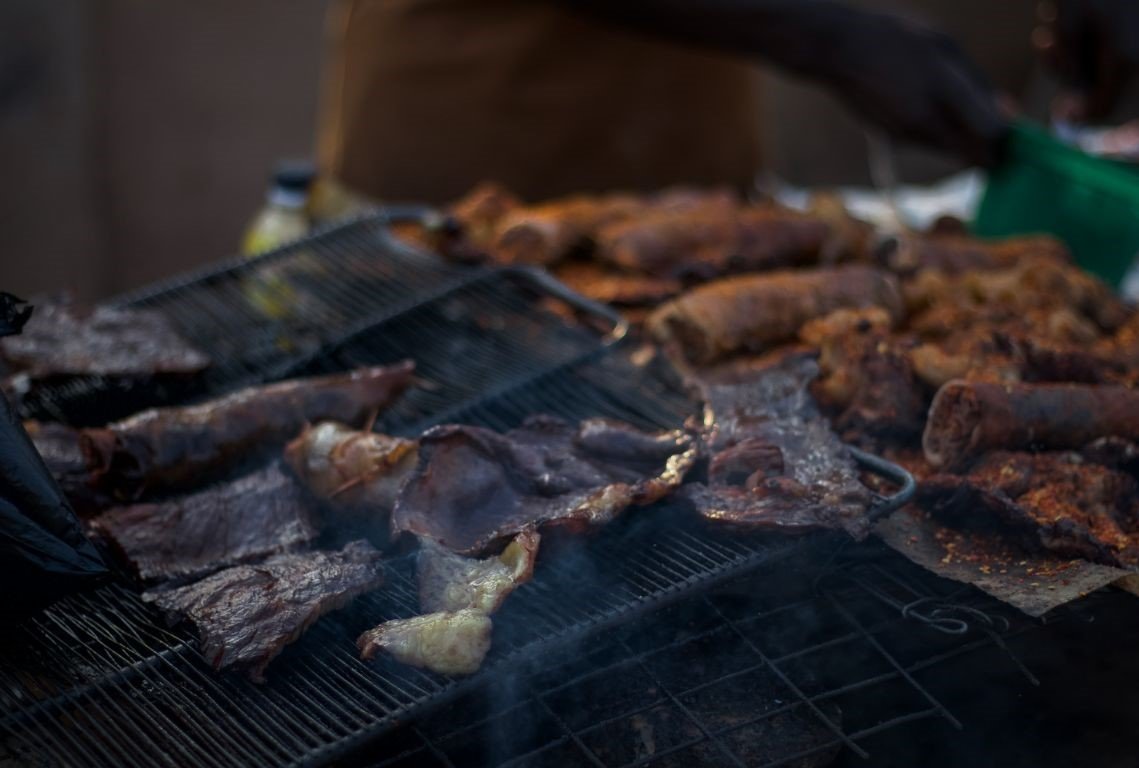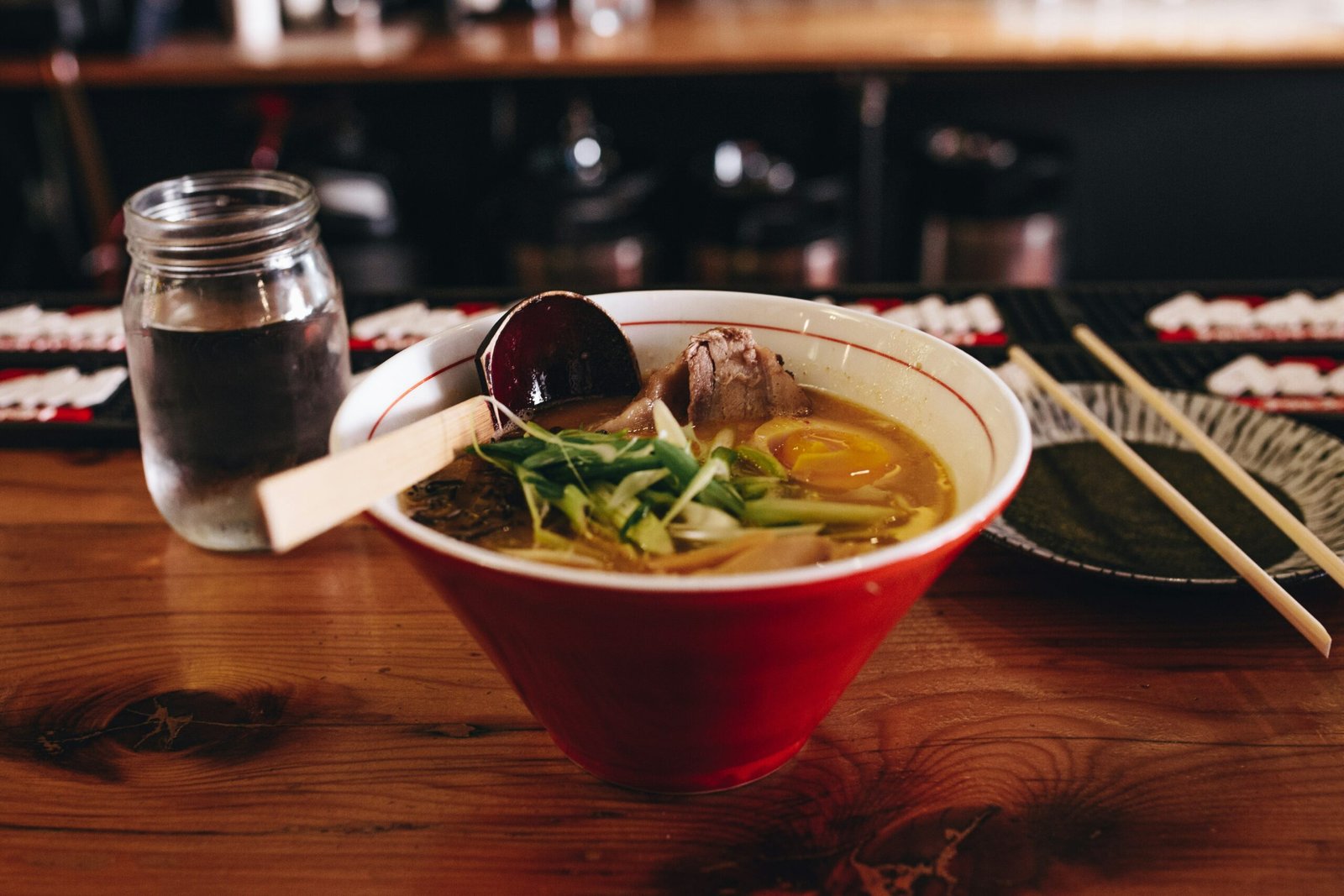Introduction to Suya: A Culinary Delight
Suya, a delectable and aromatic street food originating from Nigeria, serves as a prominent culinary staple that captures the hearts and palates of many. This skewered meat dish, often cooked over open flames, is defined by its signature spices and flavors, making it a unique gastronomical experience. Traditionally, suya is prepared using a variety of meats, including beef, chicken, and goat, each contributing distinct textures and tastes. The flexibility in meat selection allows for personal preference, making suya widely adored across different demographics.
A defining characteristic of suya is its rich flavor profile, which typically incorporates a chorus of spicy, smoky, and savory notes. The spice blend, known as yaji, is the heart of suya, combining ground peanuts, chili powder, ginger, and other seasonings that elevate the tasting experience. As the meat is grilled, the spices infuse with the heat, creating a mouthwatering aroma that entices those nearby. This dish not only showcases the culinary prowess inherent in Nigerian cuisine but also reflects the vibrant culture and communal aspect of dining shared among families and friends.
The popularity of suya extends beyond Nigeria’s borders, resonating with food enthusiasts in various West African countries. Its accessibility as a street food allows for on-the-go meals, while its deep-rooted cultural relevance resonates with those seeking a taste of home or an authentic West African experience. For many, enjoying suya is not just about the food itself; it embodies a rich tradition of communal gatherings and celebration. As you delve into the world of suya, you will discover that it is not merely a meal but a cherished part of Nigerian heritage and community.
Gathering Ingredients: What You Need for Perfect Suya

Creating the best suya at home begins with collecting the right ingredients. Suya, a beloved street food in Nigeria, can be prepared using various types of meat. While beef is the most traditional choice, lamb, chicken, and even fish can be excellent alternatives. These proteins should be fresh and preferably sourced from local markets to ensure optimal flavor and quality.
When it comes to the signature flavor of suya, the spice mix is paramount. The essential spices include ground peanuts, also known as groundnut or kuli-kuli, which lend a unique nutty taste. Cayenne pepper delivers the heat characteristic of suya, so consider adjusting the quantity depending on your spice tolerance. Additional seasonings may involve garlic powder, onion powder, and a touch of salt, all of which enhance the overall taste profile. Locally sourced seasonings, such as yaji or suya spice, can be pivotal in replicating authentic flavors. Familiarizing yourself with local spice vendors can yield fresh products at more affordable prices.
In terms of preparation, gather the necessary gear to cook the best suya. Long metal or wood skewers are crucial for holding the meat while grilling. If using wooden skewers, soak them in water beforehand to prevent burning. A grill, whether charcoal or electric, is essential for developing the smoky flavor that defines suya. If you lack a grill, an oven can serve as a suitable alternative; simply broil the skewers for that signature charred effect. Marinating the meat beforehand is recommended for enhanced flavor. After preparing your ingredients and equipment, you are ready to embark on making a delectable suya recipe that captures the essence of Nigeria’s culinary tradition.
Step-by-Step Preparation: Cooking the Perfect Suya

To create the best homemade suya, begin by selecting the right cut of meat. Popular choices include beef, chicken, or goat, but beef is often preferred for its flavor and tenderness. The meat should be cut into thin strips, approximately ¼ inch thick, to ensure that it can readily absorb the marinade and cooks evenly. This thickness also helps achieve a delightful texture that is essential for great suya.
Once the meat is cut, the marinating process can begin. Generously season your meat with a mixture of spices known as ‘yaji’ which typically includes ground peanuts, cayenne pepper, paprika, and salt. Allow the seasoned meat to marinate for at least two hours, but ideally, an overnight soak will maximize flavor infusion. This step is crucial, as it not only enhances flavor but also ensures the suya remains juicy during cooking.
When you’re ready to cook, preheat your grill. For an authentic touch, charcoal grilling is recommended as it imparts a unique smokiness that is characteristic of traditional suya. If using a broiler, place your meat on a rack to allow heat circulation. Skewering can enhance the grilling process; use flat metal skewers or soaked wooden skewers to prevent burning. Make sure to leave some space between the pieces for even cooking and better charred surfaces.
Cook the suya for about 6-8 minutes, turning frequently, until each piece has developed a nice char and is cooked through. Be cautious not to overcook, as this can lead to a dry texture. Common pitfalls include overcrowding the grill and not allowing enough space for air to circulate. By following these steps, you will master the art of suya cooking, achieving that signature char and smokiness that makes this dish a beloved favorite.
Serving and Enjoying Suya: Tips and Pairings
To truly savor the experience of the best suya homemade, presentation and accompaniment play critical roles. Traditionally, suya is skewered meat that is ideally served piping hot, allowing the tantalizing spices and smoky flavor to shine through. When serving, arrange the skewers artistically on a platter to create an inviting display. You can elevate the presentation by placing fresh, sliced onions and tomatoes alongside the suya, offering a vibrant color contrast and refreshing taste that balances the richness of the meat.
In many Nigerian homes, a spicy pepper sauce is an essential companion to this dish. This sauce is not only a perfect dip but also enhances the flavor profile of the suya, providing that necessary kick. For those interested in expanding their taste experience, consider additional garnishes such as fresh cilantro or lettuce which can add a fresh crunch and aroma. You might also explore variations on the traditional suya recipe by incorporating different types of meats or vegetables, creating a unique twist while still honoring the classic flavors.
When it comes to beverages, pairing is essential for a well-rounded meal. Popular choices include chilled palm wine or Nigerian beers that complement the spiciness of the suya. Soft drinks like zobo or kunu can also be excellent options, offering a refreshing contrast. The ideal serving temperature for suya is hot off the grill, as this allows the spices to be fully appreciated. Encouraging readers to share their experiences with this beloved dish opens up a vibrant discussion on personal variations, suggestions, and the different ways to enjoy suya, reinforcing its versatile nature in various dining contexts.


